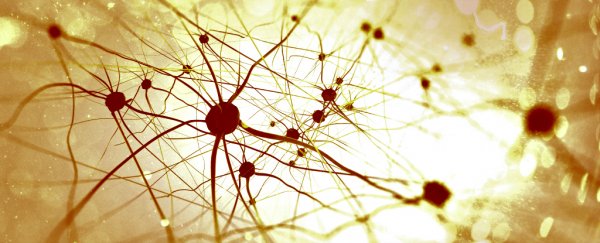Researchers have discovered why a mutated gene causes seizures in some children who have autism.
Autism spectrum disorder is a highly prevalent neurodevelopmental disorder - affecting one in 68 children - characterized by a range of symptoms, including difficulty with communication and social interactions.
One third of children who have autism spectrum disorder also have epilepsy. It's related to a gene that is mutated in patients with autism. But scientists didn't know why the mutation causes seizures.
The new discovery shows the mutation acts like a bad gardener in the brain.
It shrinks the neurons' tiny branches and leaves - its dendrite arbors and synapses - that let brain cells relay vital messages and control the brain's activity.
That shrinkage can cause a breakdown in message delivery.
In people with the mutation, inhibitory neurons- that are supposed to keep things tranquil in the brain and slam the brake on excitatory neurons - don't grow enough branches and leaves to communicate their calming message, according to the research, which appears in Molecular Psychiatry. That can lead to seizures.
The mutation, CNTNAP2 or "catnap2," works as a team with another mutated gene, CASK, implicated in intellectual disability. As a result, scientists now have a new target for drugs to treat the disorder.
"Now we can start testing drugs to treat the seizures as well as other problems in autism," says lead author Peter Penzes, professor of psychiatry and behavioral sciences at Northwestern University Feinberg School of Medicine.
"Patients with the mutation also have language delay and intellectual disability. So a drug targeting the mutation could have multiple benefits."
Hear Penzes talk about the findings:
Next, researchers will do high-throughput screening of molecules with the goal of reversing these abnormalities in patients with autism.
Catnap2 is an adhesive molecule that helps cells stick together, in this case helping the synapses adhere to the dendrites. It's a difficult molecule to target with drugs, Penzes says.
But catnap2's partner, CASK, is a social butterfly enzyme that interacts with many other molecules.
Drugs can more easily inhibit or activate the enzyme, so researchers will screen drugs to activate it, because that appears to maintain healthy dendrite branches.
When scientists blocked CASK in the study, dendrites didn't grow.
The National Institute of Mental Health of the National Institutes of Health funded the work.
Source: Northwestern University
This article was first published on Futurity. Read the original article.
